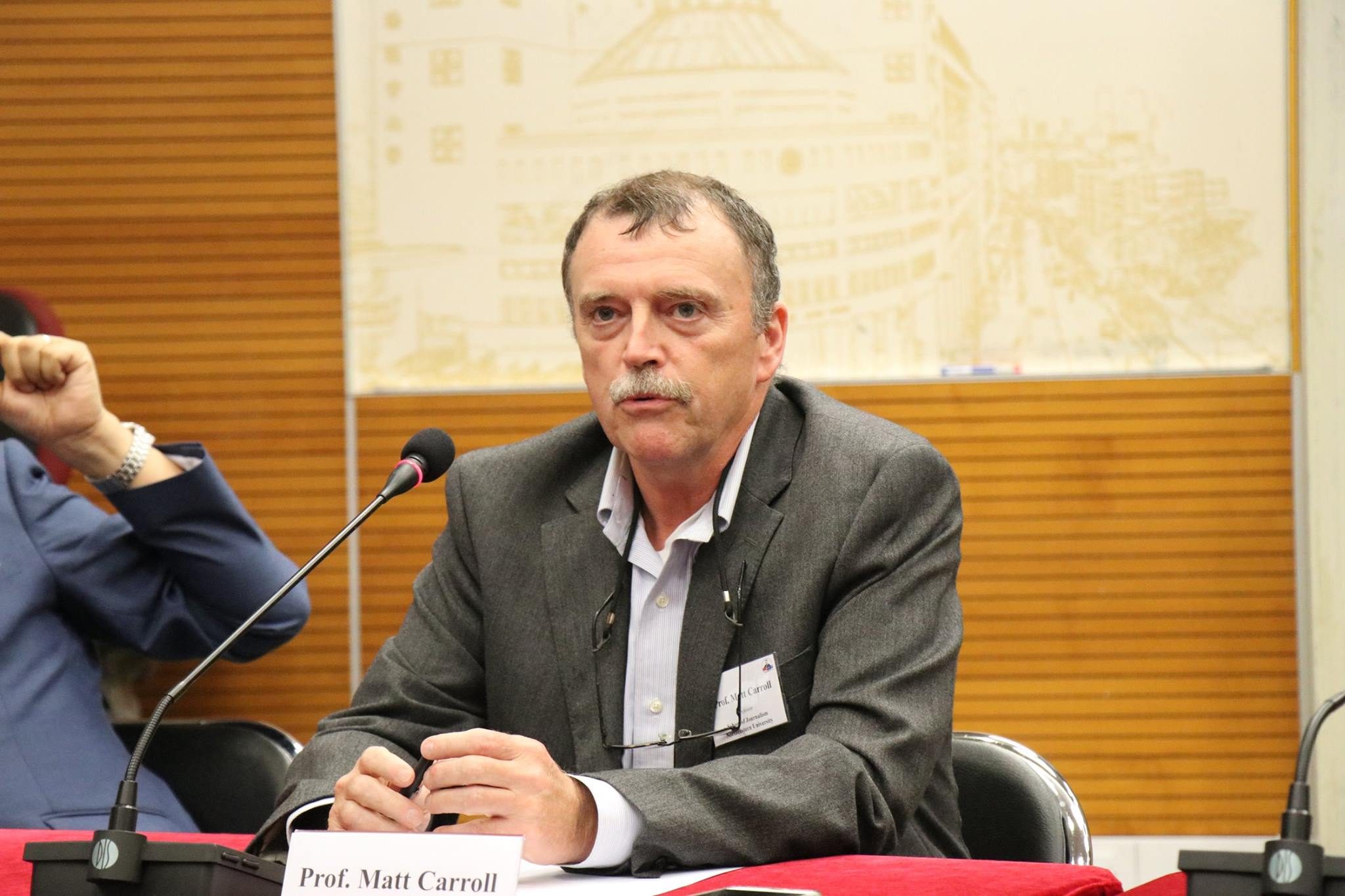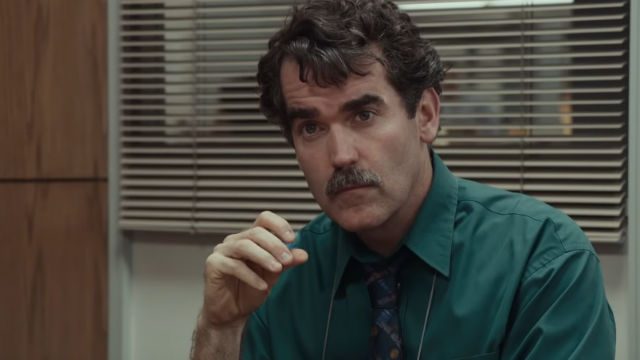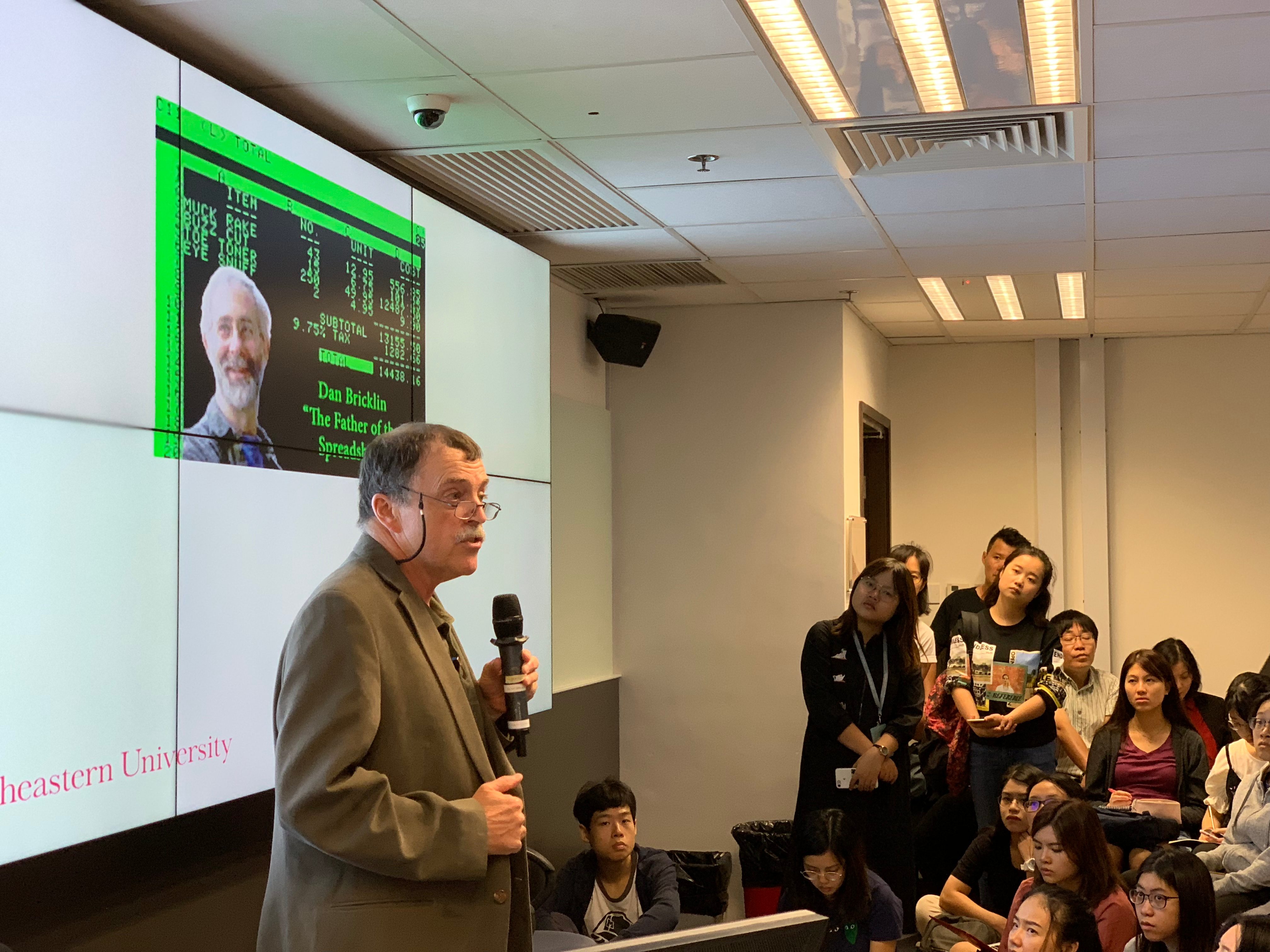SUMMARY
This is AI generated summarization, which may have errors. For context, always refer to the full article.

HONG KONG – Years before the movie Spotlight won the Oscar for Best Movie in 2016, Matt Carroll and members of the Boston Globe‘s team of the same name were just ordinary journalists doing their jobs. None of them expected that the movie would make such a huge impact at a time when the media industry was cutting down jobs.
In 2003, Carroll and the members of the team – Walter Robinson, Michael Rezendes, Sacha Pfeiffer, Ben Bradlee Jr, and Marty Baron won the Pulitzer Prize for Public Service for their story on the sexual abuses by a Catholic priest – John J. Geoghan – and the Catholic Church’s awareness of his cases.
The story would eventually be turned into a movie of the same title directed by Tom McCarthy and win the Best Picture at the 2016 Academy Awards. (READ: Oscars 2016 best picture ‘Spotlight’ ‘not anti-Catholic’ – Vatican)
Caroll stayed with the Boston Globe for 26 years before moving to the MIT Media Lab. Caroll currently teaches data journalism at Northeastern University.
Rappler got a chance to sit down with Carroll during the Pulitzer Prize Workshop at Hong Kong Baptist University, and gave his thoughts on the impact of the story, the rise of data journalism, and how actor Brian d’Arcy James shadowed him to play the role in the film.
Q: We all know that you and the Spotlight team have worked on sexual abuse in the Catholic Church at the Boston Globe. But prior to that story, what were you doing and what was the team doing back then?
Matt Carroll: So, I have been on the Spotlight team for several years before that. We had looked at… we’ve done some stories about a company that made big flashy houses, but they were actually not very well made. We did some political stories, looking at fundraising, how money was used to influence politicians, stories like that.
Q: Why was the team called Spotlight?
Caroll: It’s been called Spotlight since 1970. I think you know a spotlight on corruption. I think…I don’t know, way, way back, it’s been called that.
Q: In the movie, it was depicted that it took a lot of convincing from the victims to share their stories with the characters that were involved. Was it that really, really like that for you and the whole team in real life when you were doing the story?
Carroll: Yes, because there was this feeling among victims of what had happened was shameful. Not that they had any reason to be ashamed because they were victims, but there was this feeling that same thing [that] a woman who gets raped, it’s the feeling of shame. And so it took some convincing for some people. Once the first stories came out, then people – a lot of people, not all of them, but a lot of people, realized I have nothing to be ashamed of. I want to talk and they came to us by the hundred.
Q: At that time, it seemed that it was a taboo to tackle sexual abuse.
Carroll: Yeah. I think that’s one of the good things about the series – it did help people sort of get past that stumbling block at least for some people. And I think that’s you know, not in a direct line but in an indirect line it’s helped lead to the MeToo movement, where people again like you know, I am a victim here. There’s no reason for me to be quiet. So I think it’s part of a gradual process in American society where people are realizing that people are victims of abus, are realizing there’s no reason for me to be quiet, I have nothing to be ashamed of.
Q: You said that the movie came at a time when massive lay-off was happening in the media industry and of course many sectors. So for you, how did the movie and the story itself referring to the real life story have an impact on today’s media practitioners as well as students since you teach in a university?
Carroll: Well, I think for one thing, there was a little bit of a bump in journalism schools after the movie came out, because it is a very inspiring movie. And I don’t claim credit for that. It was just a marvelous screenwriting job by Josh [Singer] and Tom McCarthy. They were just… they were amazing. And the script is amazing. And as I’ve said many times, it’s two hours. And it is remarkable…there’s no sex, no violence. No gunfights, no car chases, it’s just two hours people talking, it’s very dramatic and very inspired with the whole film.
Q: Were all of you approached about the film? Were you consulted? And at the same time, what did you just tell them? What were the conditions that you gave them to make sure that it was accurate as possible?
Carroll: No conditions. I mean, Tom McCarthy had a great reputation as a director. We’ve seen some of his movies like The Station Agent, which is fantastic. Again, no sex, no violence, no anything. So people talking, it’s about people making friends and it’s a wonderful, wonderful movie.
They [the producers] came to us, with the idea [and] they signed us up. We had a little doubts, I mean, we were a little nervous, but they seemed sincere, and they wanted to make it about the movie. So we said, okay, and then Tom signed on. And Tom was fantastic. And he and Josh worked on the script. And they’d send us the script and said, “If you have any issues with the script, let us know. And we’ll try to make it, we want to make this as authentic as possible.” On the other hand, they did tell us right from the start that look, we’re making a movie, this is not a documentary. So there are going to be things here, which are not, that didn’t happen or happened in a slightly different way. So they take in, in real life, they might be 3 people, and they combine them into one character.
Q: In an interview, you said that you were very happy when Brian d’Arcy James was really imitating you. Like when you were typing all the information in the computer, the way you wear your glassses. He was really trying to imitate you as much as possible.
Carroll: Brian worked really hard to try to capture me. And he did it. He did a fantastic job. And he’s a wonderful, wonderful guy. We met once for several hours before he started the filming. He‘s a Broadway actor. He was working in New York, I was going to New York for a business. And on his night off, we went out for a really nice dinner.
And talking to him, I suddenly realized he was leaning in closer and closer to me. And I’m leaning back. But he was just trying to pick up certain nuances about me, I guess how it’s moving stuff. And he does a really nice job of that. And he would ask me to say certain words…And it was interesting. The whole process is very interesting.

Q: From the movie, let’s talk about something that you’re doing now, data journalism. It’s actually new to some, but you’ve been doing this for the longest time. So how do you see it as part of today’s media landscape?
Carroll: Data journalism is part of an evolution where journalism has been going for a long time. So it’s not different than journalism, it’s just an evolution on journalism – sort of another tool that reporters can use in their tool kit just like video or audio for podcast. And it’s just that something has happened. Some journalists embrace it, some don’t care for it. That’s totally fine because I don’t think it will make sense to everyone.
I would be happy if everyone would do some basic stuff like Excel. I think that would help them. It’s growing by leaps and bounds – the number of reporters that embraced it has increased.

Q: Going back to the movie, you and the Spotlight team found yourself once again, back in the media after the movie was shown. So as a teacher in a university and having met a lot of people, what do you think was the impact of the movie on today’s future media practitioners?
Carroll: You know, I think it’s just don’t give up, push hard, and try to get the information. And just stick with it. And that’s one lesson I’ve learned through the years. If you keep pushing hard, and you work to get the information, then you can get it and you can really do some really good stories.
Q: What do you think about the situation that a lot of the female reporters are going through right now? Because it’s 10 times harder considering the sexism and misogynist comments.
Carroll: Yeah, I mean, it’s still it’s still a tough field, it’s clearly a tough field. I mean you look at the number of females entering journalism school, and then you look at the top jobs in all the newsroom companies and they’re all dominated by males. Not entirely dominated, but it’s better than it was 20 years ago, 30 years ago, but it’s still, it’s a male-dominated business.
Q: Are there any qualities that you admire about your female colleagues considering again, the polarizing times we are in.
Carroll: I think they bring a very, very different perspective. And I was thinking about this, when I read a column, it was a sports columnist, actually for the Boston Globe. And she was talking about a little bit about the MeToo movement, but also how difficult it is for a woman in sports. You never would have seen that 20, 30 years ago, and it’s a very valid concern. So it was nice to see someone – it was nice to see that woman getting a chance.
Q: How do you see the future of journalism right now? And what is the one thing that you always keep telling your students?
Carroll: It’s getting more and more technical. You know, we talked a little bit about some of the tools like data, data visualization developing, and that is just growing and growing and growing. And the more you as a student can learn some of those tools, the more employable you are. The days when you can push and you just have a typewriter and a notebook [are] kind of ending.
There will always be people like that in the field. They just don’t have the chops to do it. They don’t want to do it, and that’s totally fine. And they can have very happy and brilliant careers just with a keyboard and a notebook. But if you want to get hired, your odds of getting hired are much, much higher if you have some technical skills. – Rappler.com
Add a comment
How does this make you feel?
There are no comments yet. Add your comment to start the conversation.